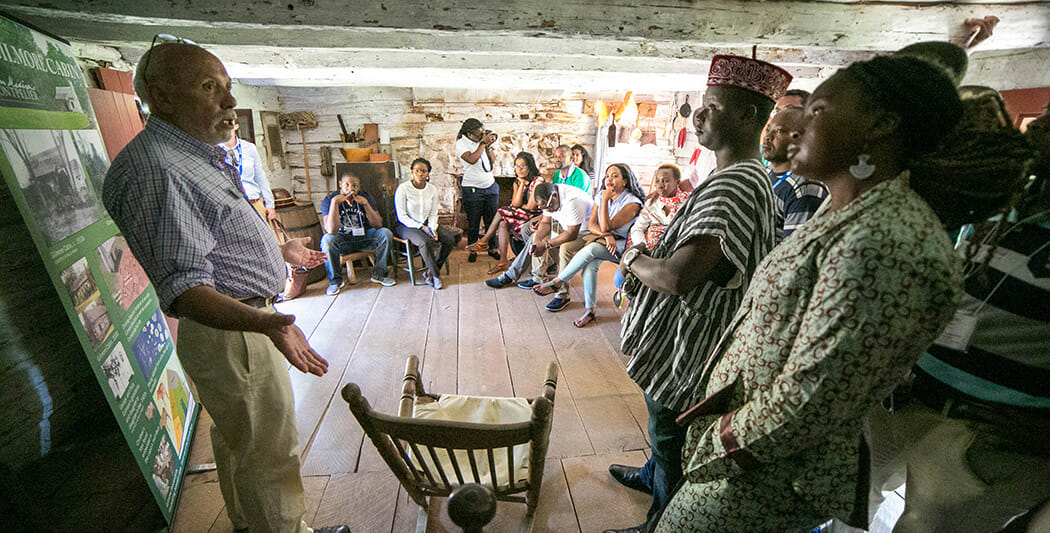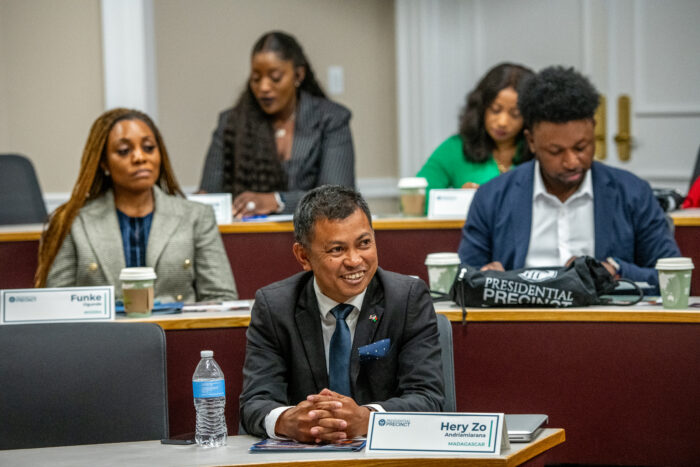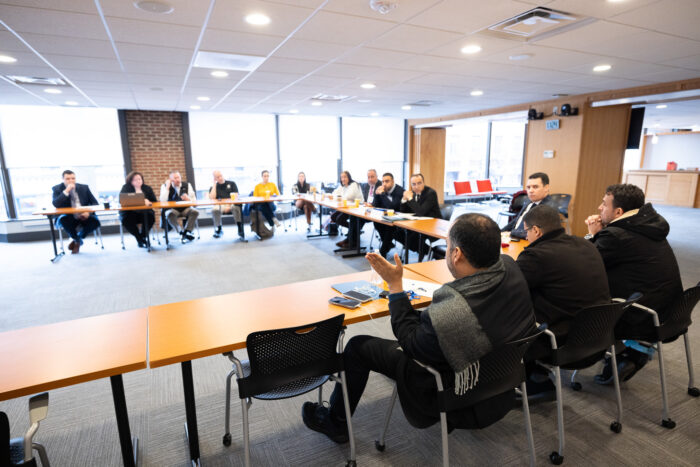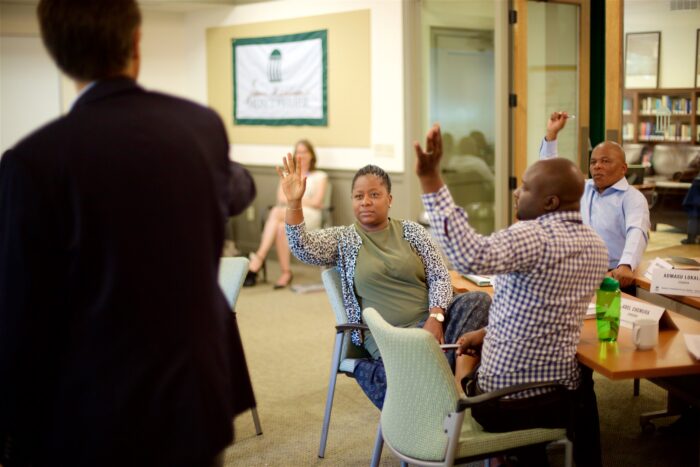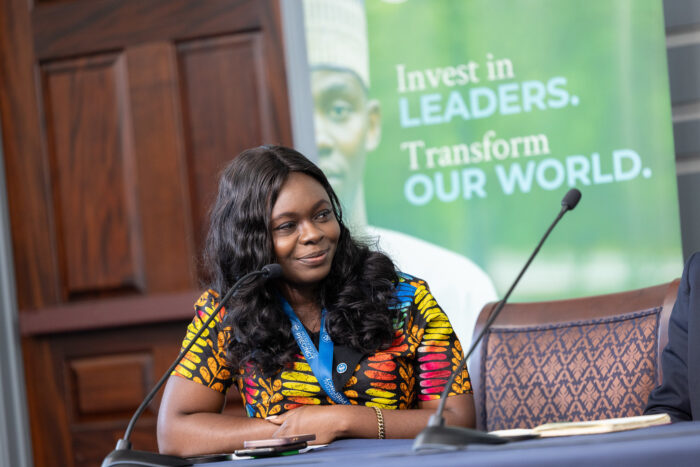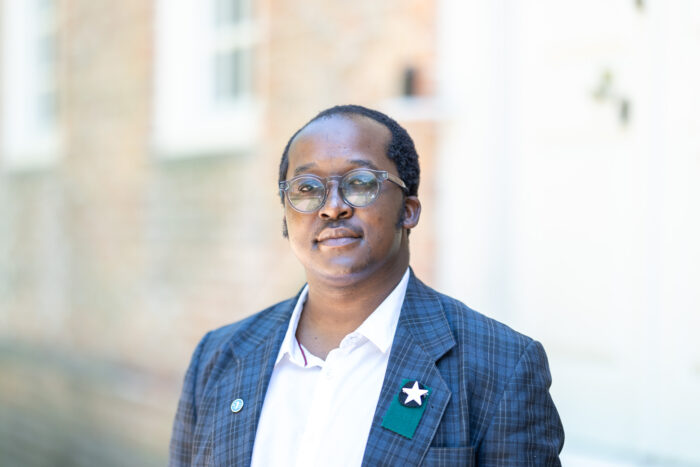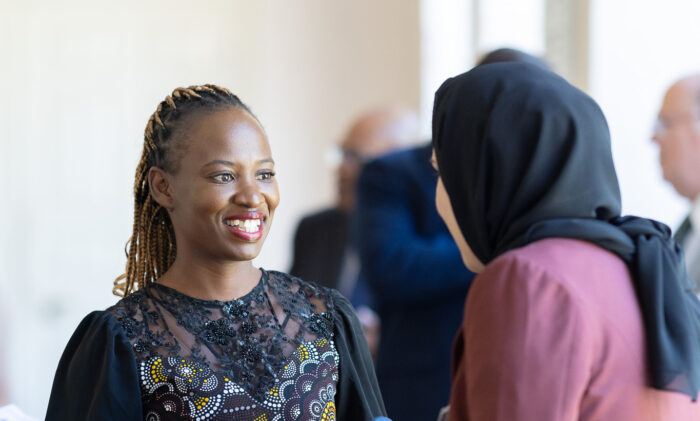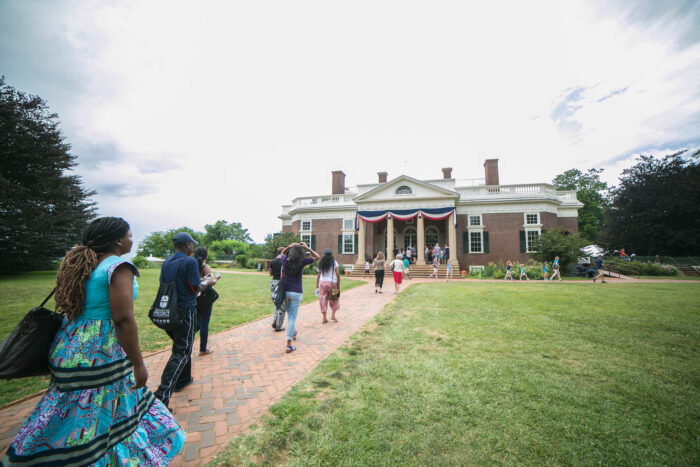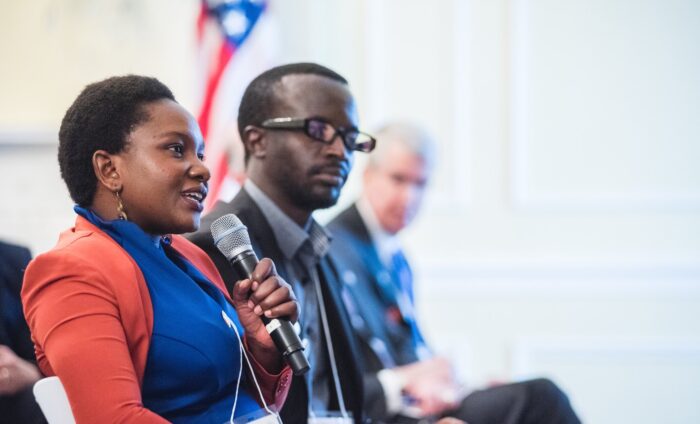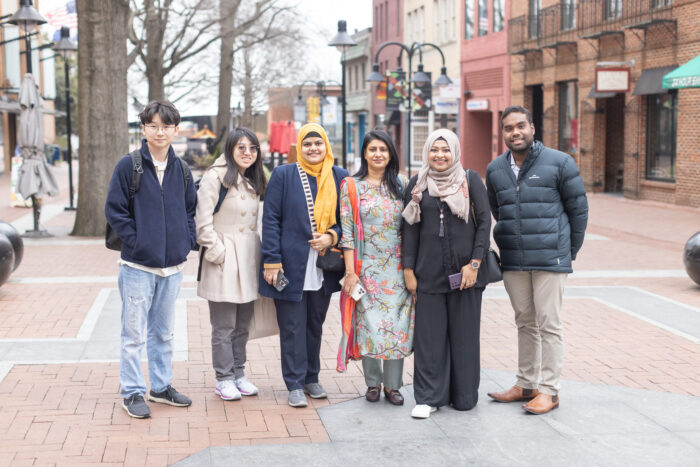Precinct Appointed "Best Brainstorm" by C-Ville Weekly
Originally published by C-Ville Weekly.
Presidential Precinct brings the world to Charlottesville
Around here, we might take it for granted that City Hall displays three presidents’ portraits. But those from other cities—and even other continents—tend to be wowed by the weight of history in Central Virginia. In 2012, a new venture set out to harness the power of that history in hopes of finding solutions to today’s vexing problems.
Spurred in part by UVA Board of Visitors member Jim B. Murray, Jr., four presidential sites (Monticello, Montpelier, Ash Lawn-Highland and Morven Farm) joined with two universities (UVA and William & Mary) to form the Presidential Precinct. The nonprofit hosts programs that address global and civic leadership, and have drawn next-generation leaders from more than 100 countries. “This is the birthplace of modern democracy,” says the Precinct’s Drew Precious—an inspiring location for young people who want to make their own nations better.
But the Presidential Precinct offers a lot more than tourism. While they’re here, participants also hear from professors, entrepreneurs, nonprofit leaders and each other as they wrestle with tough issues: How can we get more girls ready to be leaders in government? How can disabled voters be given access to the polls?
Of the Precinct’s several dozen programs, one takes the spotlight this summer—23 fellows from 16 countries are in Charlottesville for six weeks through the Mandela Washington Fellowship for Young African Leaders. Participants have weathered stiff competition to get here (“It’s tougher to get in than to Princeton or Harvard,” says Precious) and range from a Zimbabwean women’s rights lawyer to a Ugandan LGBT activist.
The fellows spend time in classrooms as well as volunteering in the community and visiting the six partner institutions of the Precinct. “This is a State Department program,” says Precious, “and there are 28 host institutions. We’re the only host who’s not simply a university. We offer our fellows the ultimate package.”
After six weeks of inspiration and education, the fellows head back home—but their engagement with the Precinct continues. “We want to be committed to a lifelong network,” says Precious. To that end, the Precinct offers a private digital network where the 700 alumni can share their progress and offer each other support.
Other Precinct programs focus on leaders from the Americas, on African business leadership, on gender equality in education worldwide. The Precinct is nothing if not ambitious—but then, so were the founding fathers. —EH

